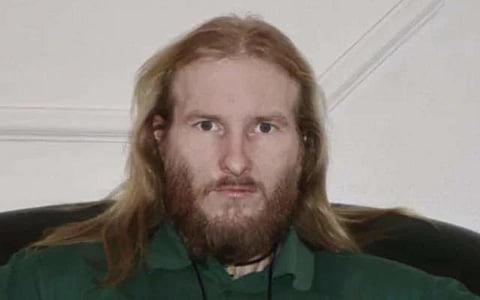

DAVYDKOVO: During his trial, Anatoly Berezikov repeatedly said he was afraid of "disappearing". Two weeks later, on June 14, he was found dead in his cell in southwest Russia.
Berezikov is the first known critic of the Ukraine conflict to have died in custody since the Kremlin launched large-scale hostilities in February 2022.
The circumstances of his death are unclear, but the cause given by authorities is suicide.
His friends and allies dismiss that account, saying they believe Berezikov was tortured in detention -- a common occurence in the Russian penal system -- possibly leading to his death.
"People can be repressed without trial or investigation. They can kidnap you, imprison you, search you, intimidate you, torture you and kill you," Tatiana Sporycheva, a rights activist who advocated on behalf of Berezikov, told AFP.
In Rostov in southern Russia, Berezikov had developed a reputation as a cheerful non-conformist, a lover of experimental music and staunch critic of Russian leader Vladimir Putin.
He was one among thousands of people in Russia to have spoken out against the conflict and subsequently been threatened, fined or jailed.
Short, consecutive jail terms
Born in 1983 in the Siberian city of Biysk, Berezikov moved to Rostov in the 2010s, where he was active in the cultural underground scene.
"He worked as a tattooist and body-piercer. He made tattooing machines and sold them," a friend told AFP on the condition of anonymity.
Berezikov's friends and allies have also been pursued by security services.
With his talent for tinkering, Berezikov also built analogue synthesisers for his experiments in "noise music".
"He was a God-given technician," said fellow musician Valentin Sokhorev, 52.
Berezikov looked everywhere for spare parts.
In a 2019 photo, he can been seen at a snow-covered flea market wearing just shorts, his chest bare. The skimpy combo was Berezikov's usual uniform.
In the southern city of Rostov-on-Don, the 40-year-old with a beard and long blond hair rode around the city shirtless on his bike.
Berezikov was also an activist for leading opposition figure Alexei Navalny's anti-corruption movement.
By default, that made him an opponent of Russia's military intervention in Ukraine.
He claimed to have put up posters from the Ukrainian campaign "I Want to Live", which offers Russian soldiers guidance on how to surrender.
Berezikov was arrested in May by police and given three short consecutive jail terms for alleged misdemeanours, mirroring a trend deployed against Kremlin critics before serious charges are brought.
In custody, Berezikov was beaten and tortured with electric shocks, his lawyers said.
Activist Sporycheva saw him in court on May 31, and made a video clip of Berezikov looking exhausted.
"He had lost a lot of weight. He kept saying, 'They want to take me away. I will disappear and no one will find me'", she said.
Berezikov died on June 14 having hung himself in his cell, officials said. But no expert medical assessment has been made public.
Authorities have however opened an investigation into potential abuses that could have led to the alleged suicide.
Sporycheva and lawyer Irina Gak, who have also been looking into Berezikov's death, have left Russia in the wake of threats they received from security services.
Now a lawyer from the Russian human rights NGO Pervy Otdel has taken up their efforts but is working on the file anonymously. Berezikov's family do not speak to the press for reasons of security.
'Hornet's nest'
Musician Sokhorev, who saw himself nearly as an older brother to Berezikov, said he tried for a long time to convince the tattooist to swear off activism.
"I said to him, 'My friend, you shouldn't do that. If you wave your ass in front of a hornet's nest, expect them to sting you very hard. So don't do it'. But he didn't see that, he didn't see the danger," Sokhorev said.
"He was brave, but mad," the musician added.
Sokhorev himself saw tanks fire on the parliament in Moscow during Russia's bloody constitutional crisis in 1993. Disgusted by the events, he turned his back on politics.
"I understood that in this country, the person who is right is the person with tanks. Since 1996, I do not vote anymore," said Sokhorev, who lives in the village of Davydkovo, near Moscow, where he tends to his vegetable garden.
On the porch of his house, surrounded by his four dogs, he plugged in one of the synthesisers made by his friend. The instrument makes a shrill electronic sound.
Sokhorev said some people experience a "sense of calm" listening to the storm of noises produced by the machine -- among them was Berezikov.